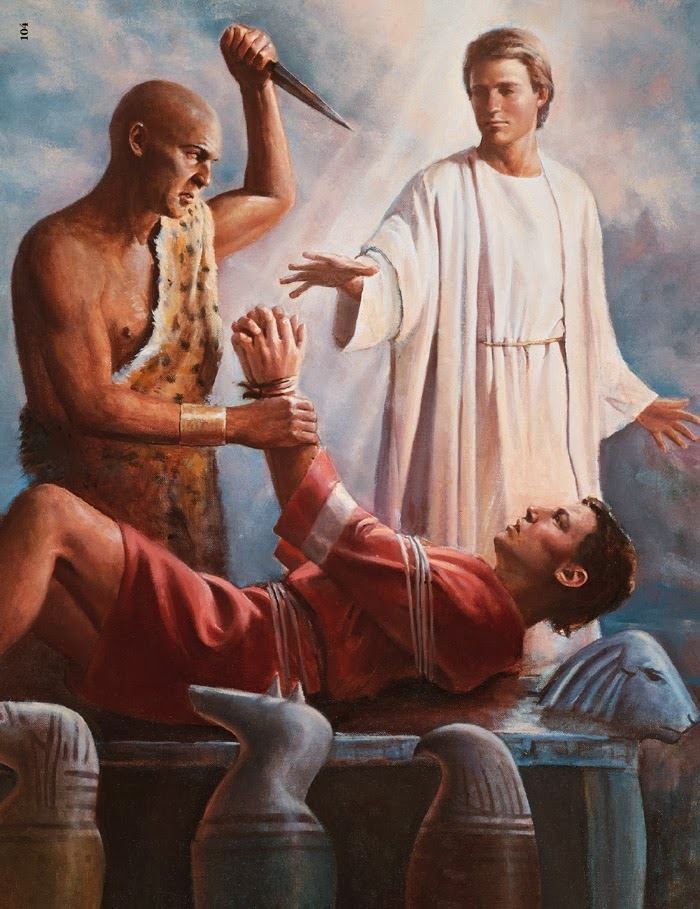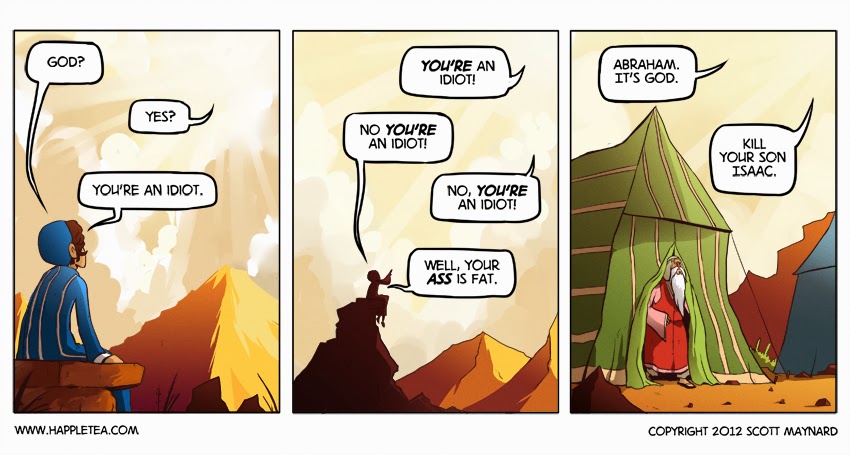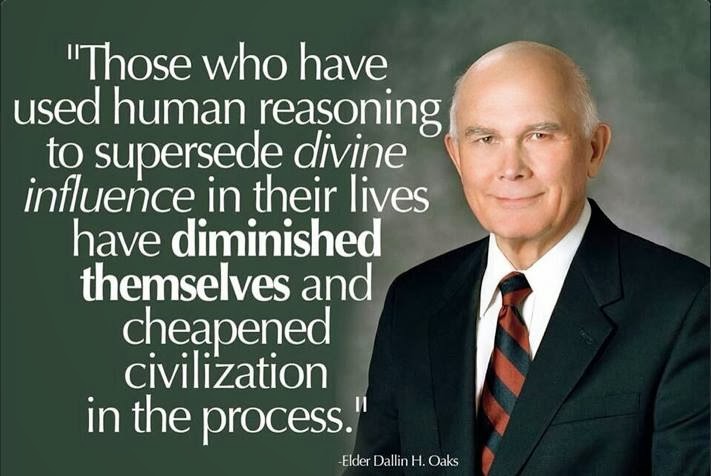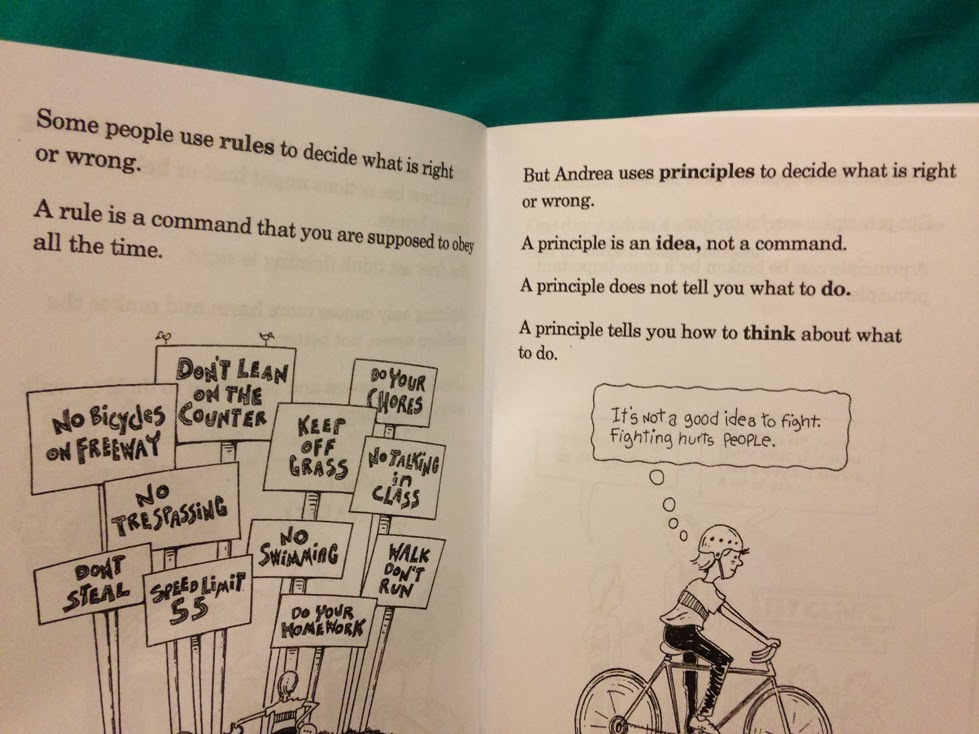“God Will Provide Himself a Lamb”
Abraham 1; Genesis 15–17; 21–22
Links to the reading in the SAB: Abraham 1, Genesis 15, 16, 17, 21, 22
LDS manual: here
Background
We’re back to Abraham, and a big story that everyone remembers: the attempted murder of Isaac. But a lot of other markers of tribal identity are also making their first appearance in this lesson. Let’s get right into it.
Main points from this lesson
There would have been no attempt on young Abraham’s life.
The lesson manual makes a quick stop at the Book of Abraham. They want to draw a parallel between Abraham nearly getting sacrificed by Egyptian priests as a boy, and then being asked to sacrifice his own son in turn. Wow, parallelism. Abraham having flashbacks and moments of self-doubt. It’s a neat literary twist.
The problem is that it couldn’t have happened.
First up, it’s disputable that human sacrifice was ever practiced in ancient Egypt.
Second, if human sacrifice was practiced in ancient Egypt, it would have been at one specific time and place: Abydos in 2950–2775 BCE. This may have been a case of ‘retainer sacrifice’, or killing all the servants so they could serve the king in the underworld.
Ask: Doesn’t the idea of the afterlife have the most delightful implications?
Okay, so when would that have been on our fanciful Old Testament timeline? Not in Abraham’s time, that’s for sure. Abraham would have been 1,000 years too late.
Click the graphic for a big PDF, straight from the LDS website.
It would have been at about the time of Noah’s birth, before the Flood, and way before Noah’s grand-daughter Egyptus would have discovered Egypt.
Abraham: “Wait — you can’t kill me! All the available evidence shows that the Egyptians didn’t practice human sacrifice during this period!”
Priest: “Can it, white-and-delightsome boy! I killed Fred Flintstone for his clothing, and I can kill you!”
Angel: “Cease this anachronistic ceremony!”
This is just one more manifestation of how mixed-up the LDS timeline is. The bodies from Abydos date from the 1st Egyptian dynasty around 2900 BCE, but according to the LDS timeline, Egypt wouldn’t have a pharaoh until the alleged Egyptus put her son on the throne — some time after the Flood, some 500 years later. Funny how the Flood didn’t wipe all the Abydos evidence out.
Polygamy rears its head
Abraham isn’t the first polygamist in the Bible — that would be Lamech in Genesis 4 — but you begin to get an idea of the problems that could arise.
Abraham and Sarah are ‘barren’ — her fault, natch — so Sarah suggests ‘going in unto’ her maid Hagar. Apparently Abraham didn’t find Hagar too horrible, because it doesn’t even take him a verse to think about it.
16:2 And Sarai said unto Abram, Behold now, the LORD hath restrained me from bearing: I pray thee, go in unto my maid; it may be that I may obtain children by her. And Abram hearkened to the voice of Sarai.
Conflict arises when Hagar conceives, and Sarah forces her to flee into the wilderness.
Here’s a bit from the real manual:
What can the revelation that Abraham and Sarah would have a son teach us about how God fulfills his promises? (God will fulfill his promises, though not necessarily in the way or at the time we might expect.)
LOL. Right, you might need a concubine to help you with that.
The attempted murder of Isaac embodies the worst idea in religion: “Always obey God.”
It’s a parent’s job to protect their children. No decent deity would try and short-circuit that, but Jehovah does, when he commands Abraham to sacrifice Isaac.
22:2 And he said, Take now thy son, thine only son Isaac, whom thou lovest, and get thee into the land of Moriah; and offer him there for a burnt offering upon one of the mountains which I will tell thee of.
And any decent parent would ignore any such request, but Abraham doesn’t.
Ask: Why did God command Isaac to be killed?
Some have speculated that Jehovah and Isaac didn’t get on.
Others say that God was off his nut.
At one point, I imagined (and mentioned in my Gospel Doctrine class) that God wanted someone to know what it felt like to have to sacrifice his son. Which is crap; God didn’t have to kill his son. An all-powerful god could have created a different way — hey, maybe just forgiving people — but instead chose human sacrifice. What a wacky god, eh?
So now I’m not sure what the rationale is supposed to be, and I’m left with the impression that God really just likes killing children. (The rest of the Old Testament will do little to dispel this, I’m afraid.)
In Tim Minchin’s words, the God of the Bible has a ‘fetish for dead baby blood’.
In considering the Abraham-and-Isaac story for this lesson, it’s taken me a while to come to grips with what it’s about and what it’s meant to teach. And I’ve come to realise that what we’re seeing here is the foundational belief — and the worst belief — of Abrahamic religion: Always obey God.
In the upside-down world of Abrahamic religion, this loyalty test — in which a father is commanded (and willing) to murder his child — is held up to be the ultimate moral act, the thing that proves Abraham’s righteousness.
22:16 And said, By myself have I sworn, saith the LORD, for because thou hast done this thing, and hast not withheld thy son, thine only son:
22:17 That in blessing I will bless thee, and in multiplying I will multiply thy seed as the stars of the heaven, and as the sand which is upon the sea shore; and thy seed shall possess the gate of his enemies;
22:18 And in thy seed shall all the nations of the earth be blessed; because thou hast obeyed my voice.
In other words, the most moral thing to do in an Abrahamic religion is whatever you think the voices in your head are telling you to do, no matter how immoral that is.
It’s an idea that comes up a few times in the scriptures, so this isn’t a one-off:
Matthew 6:33 But seek ye first the kingdom of God, and his righteousness; and all these things shall be added unto you.
Ask: What’s wrong with obeying a god above all else?
Possible answers:
- It short-circuits reason and discourages questioning.
- It’s an abnegation of the responsibility to think for oneself and make moral decisions.
- It invokes a trust that hasn’t been earned.
- It makes immoral actions seem moral. All it takes is for someone to think that God has commanded an immoral action, and poof! it’s magically moral.
- It brings about a sheep-like mentality that can be readily exploited by leaders.
And speaking of leaders, here’s one who thinks that by ignoring the commandments of a god, non-believers are ignoring morality, and destroying society.
Cheapened civilisation? I think he’s cheapened civilisation by unloading his dogma onto his followers, and taking their 10% for the pleasure. How wrong that those of us who choose to live by the light of reason should get sniped at and hectored by those who make their living from superstition and control.
Oaks is wrong about this, just as he’s wrong about so much else. For me, using human reasoning to supersede divine influence has been the key to understanding, education, and escape from the muck of religion. And why do they rubbish human reasoning, anyway? If logic and reason were on their side, you can bet they’d appeal to it. But they don’t, and that’s enough to tell you where they stand. Human reasoning has brought all the intellectual progress that we have. Oaks is a guy who’s trying to hold all that back.
Obedience to a god above all else is a terrible idea, and it starts here in this chapter of Genesis. The rot of Abrahamic religion starts with its founder. This gets people flown into skyscrapers, gets children killed from lack of medical attention, and sees poor people give their money away to wealthy mall-builders.
Ask: If obedience to a god is the wrong thing to do, what’s the right thing?
The one word answer is: Think.
- Use your mind and your moral instincts to decide what’s right or wrong.
- Think about the consequences of your actions, and take responsibility for them.
A good guide for this is Dan Barker’s book for kids: Maybe Right, Maybe Wrong. It focuses on well-thought out principles instead of rules, and the need to decide what’s right in terms of people, not gods.
Click here for a preview on Imgur, or go to all the usual places to buy.
Additional ideas for teaching
What else was in the reading?
God doesn’t care for foreskins, even though he created them
17:10 This is my covenant, which ye shall keep, between me and you and thy seed after thee; Every man child among you shall be circumcised.
17:11 And ye shall circumcise the flesh of your foreskin; and it shall be a token of the covenant betwixt me and you.
Slavery, on the other hand, is okey-dokey
17:13 He that is born in thy house, and he that is bought with thy money, must needs be circumcised: and my covenant shall be in your flesh for an everlasting covenant.
Casting a mother and child out into the desert to die? A-okay!
21:9 And Sarah saw the son of Hagar the Egyptian, which she had born unto Abraham, mocking.
21:10 Wherefore she said unto Abraham, Cast out this bondwoman and her son: for the son of this bondwoman shall not be heir with my son, even with Isaac.
21:11 And the thing was very grievous in Abraham’s sight because of his son.
21:12 And God said unto Abraham, Let it not be grievous in thy sight because of the lad, and because of thy bondwoman; in all that Sarah hath said unto thee, hearken unto her voice; for in Isaac shall thy seed be called.
21:13 And also of the son of the bondwoman will I make a nation, because he is thy seed.
21:14 And Abraham rose up early in the morning, and took bread, and a bottle of water, and gave it unto Hagar, putting it on her shoulder, and the child and sent her away: and she departed, and wandered in the wilderness of Beersheba.
Off you go, darlin’. Lotsa luck.









1 March 2014 at 3:05 pm
Keep it up. I am loving the lessons!
1 March 2014 at 6:47 pm
I just love these. Great work.
2 March 2014 at 1:34 am
Amazing as usual!
2 March 2014 at 3:08 pm
17:11 And ye shall circumcise the flesh of your foreskin; and it shall be a token of the covenant betwixt me and you.
They should include this token in the LDS endowment ritual – or restore it. I think I could suggest a good “accompanying name and sign.” The name would be, “I got your foreskin right here” and the hand gesture would be … well … appropriately demonstrative.